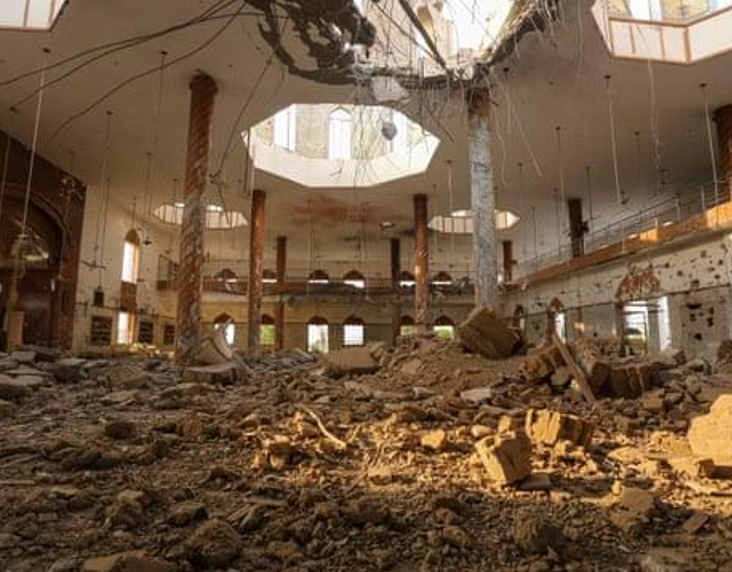
Pakistan 'has the right to respond' to India's Operation Sindoor, says minister
Tensions escalate between India and Pakistan after a deadly missile attack by the Indian Air Force kills 31 people in Pakistan. Pakistan’s government has vowed to avenge the deaths, raising fears of a full-blown conflict between the two nuclear-armed nations.
Prime Minister’s Defiant Pledge
In a late-night address, Pakistani Prime Minister Shehbaz Sharif promised to seek justice for the 31 victims of the Indian airstrikes. “We will avenge each drop of blood shed,” Sharif declared, emphasizing the nation’s commitment to retaliate. The attacks, which hit nine locations in Pakistan-administered Kashmir and the Punjab region, have triggered widespread condemnation from Islamabad.
Retaliation Threatened
Pakistan quickly accused India of provoking conflict, labeling the airstrikes as an “inferno” that endangered regional peace. In response, Pakistan’s military has been authorized to take appropriate retaliatory measures, although the government has yet to reveal any specific plans.
India's Justification for Strikes
India defended its actions, stating that the missile strikes were a direct response to an attack in Indian-administered Kashmir, which killed 25 Hindu tourists. Indian officials accused Pakistan of harboring militant groups responsible for the assault, a claim Pakistan has repeatedly denied. The Indian government insists that the strikes targeted terrorist training camps operated by groups such as Lashkar-e-Taiba and Jaish-e-Mohammed.
Pakistan Rejects Terrorism Allegations
Pakistan strongly rejected India’s claims of terrorist infrastructure within its borders. Foreign Minister Ishaq Dar emphasized that the areas hit by Indian missiles were free of any militant activities. Dar also voiced concerns about the international community’s indifference to the ongoing crisis, calling for more decisive action from global powers.
Tensions on the Ground
The strikes have also intensified the humanitarian crisis in the region. At least 16 people were killed in the Punjab province, marking the first time since the 1971 India-Pakistan war that Indian missiles have struck this vital region. Both countries have suffered casualties, with India reporting losses in the form of damaged aircraft. Pakistani officials claim they shot down five Indian jets during the missile strikes.
Pakistan's Resolve to Defend Itself
During an emergency meeting of Pakistan’s National Security Council, government officials reiterated the country’s right to self-defense. Pakistan’s Foreign Minister further asserted that the country would exercise “maximum restraint” but would not hesitate to respond if its sovereignty was threatened. Despite the grave economic consequences of war, Dar stressed that national dignity and territorial integrity outweighed all other considerations.
Cross-Border Shelling Continues
As the conflict escalates, heavy shelling continues along the Line of Control (LoC), the de facto border between India and Pakistan. Residents in both Indian and Pakistani-controlled Kashmir are enduring a constant barrage of artillery fire, with many being forced to evacuate their homes. The situation remains dire, particularly in areas near the border, where civilians are suffering from the intense violence.
Global Call for De-Escalation
International powers have voiced concerns over the growing tensions between India and Pakistan. The US, UK, China, and the UAE have all called for urgent de-escalation and the protection of civilians. British Prime Minister Keir Starmer urged both nations to engage in dialogue and avoid further violence. Meanwhile, former US President Donald Trump also expressed his desire for the fighting to cease, highlighting the importance of peace in the region.
The Kashmir Dispute Looms Large
The conflict over Kashmir remains a deep-seated issue between India and Pakistan. The region has been disputed since the partition of British India in 1947, with both nations claiming full sovereignty over the area. The two countries have fought three wars over Kashmir, the last being in 1999, and tensions remain high to this day.
A Fragile Ceasefire
As military confrontations continue, both countries are bracing for further escalation. The potential for a larger conflict looms, with the international community urging restraint. The situation in Kashmir is becoming increasingly volatile, and the world watches closely, hoping for a peaceful resolution before more lives are lost.
The Path Forward Remains Uncertain
With no immediate end in sight, Pakistan and India are on a dangerous path. As Pakistan contemplates its next move, the hope for peace rests on diplomatic intervention. However, given the stakes and the long-standing hostilities, the road to resolution remains fraught with uncertainty.















